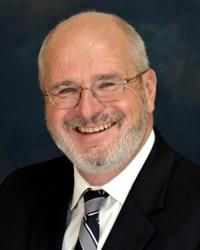In all those other countries
ARLES, France—The voice of antiquity is quiet but speaks with force.

John Krull, publisher, TheStatehouseFile.com
I’m seated now on a rooftop terrace in this old, old city in Provence, a glass of good local wine in hand, the past whispering all around me.
Across the street, with the sun setting behind them, are the ruins of a Roman amphitheater nearly two millennia old. It was constructed in the first century following the birth of Christ and once served as a kind of colosseum. As many as 20,000 people crowded inside its elegant stone walls to watch chariot races and hand-to-hand battles.
It is still in service, presenting bullfights during festival times and concerts and plays during the summer for much smaller crowds.
When we think of the Romans, their games and their spectacles, we focus on the combatants in the arena, the gladiators who jousted to hear the crowd’s roar—the men Russell Crowe mythologized a generation ago in the Ridley Scott film.
I find myself now, though, pondering the lives of those who filled the stands, the ones who came to the amphitheater not to battle but instead to seek diversion and entertainment.
Earlier, not long after arriving here, I wandered the narrow, twisting streets of the oldest part of this ancient city. Many are so tight that cars cannot pass over them. They and the aged structures that line them were built when the mass of people traveled only on foot.
Arles now is a community of slightly more than 50,000 people.
In earlier times, though, it likely was home to twice as many people. I try to imagine how crowded these winding streets must have been in those long distant days, filled with people moving over them, doing work, living lives.
At times, I can almost see them, but then they whisk away, like a picture fading from a screen.
Time swallows so much. It is hard for those who live in one era to connect with those who lived in an earlier one.
“The past is a foreign country; they do things differently there,” the novelist L.P. Hartley famously wrote.
He was right.
History is a vast warehouse of lost objects. So many people live only to have their existences forgotten, their toil unremembered, their joys, struggles and traumas erased from the collective memory by the steady tolling of days, weeks, months, years, centuries and millennia.
As I sip my wine, my thoughts stretch back.
My ancestors on both sides of my birth family must have felt the touch of Roman rule, if not the yoke as the people who lived here did. My forebears, peasant stock on each side, lived and toiled for centuries in the lowlands of Scotland and what eventually would become Germany.
I think of the lengthy, unbroken string of survival and endurance that led to my life and continues into another generation with the lives of my children. I ponder all the quiet acts of determination that linger now only in my blood and cannot be recovered by mind or memory.
I look across the street at the ancient ruins that once hosted thousands and remind myself that mine is only one set of bloodlines. There are so, so many others.
So many pasts.
So many foreign countries.
So many people doing things differently there.
I sip my wine, savoring each drop. The residents of Provence have been making wine for more than 2,500 years—or more than a half-millennium before the amphitheater here was built.
Long, long before my mother’s ancestors arrived in what were the American colonies in the 1760s.
Long, long, long before my father’s forebears arrived in the United States at the end of the 19th century.
I look across the street at the stone walls that have seen so much and watch as twilight descends. The tangerine of the sun melts into the darkening blue of the evening sky. The shadows deepen as the night comes.
And time moves on.
FOOYNoTE- John Krull is director of Franklin College’s Pulliam School of Journalism and publisher of TheStatehouseFile.com, a news website powered by Franklin College journalism students. The views expressed are those of the author only and should not be attributed to Franklin College.




